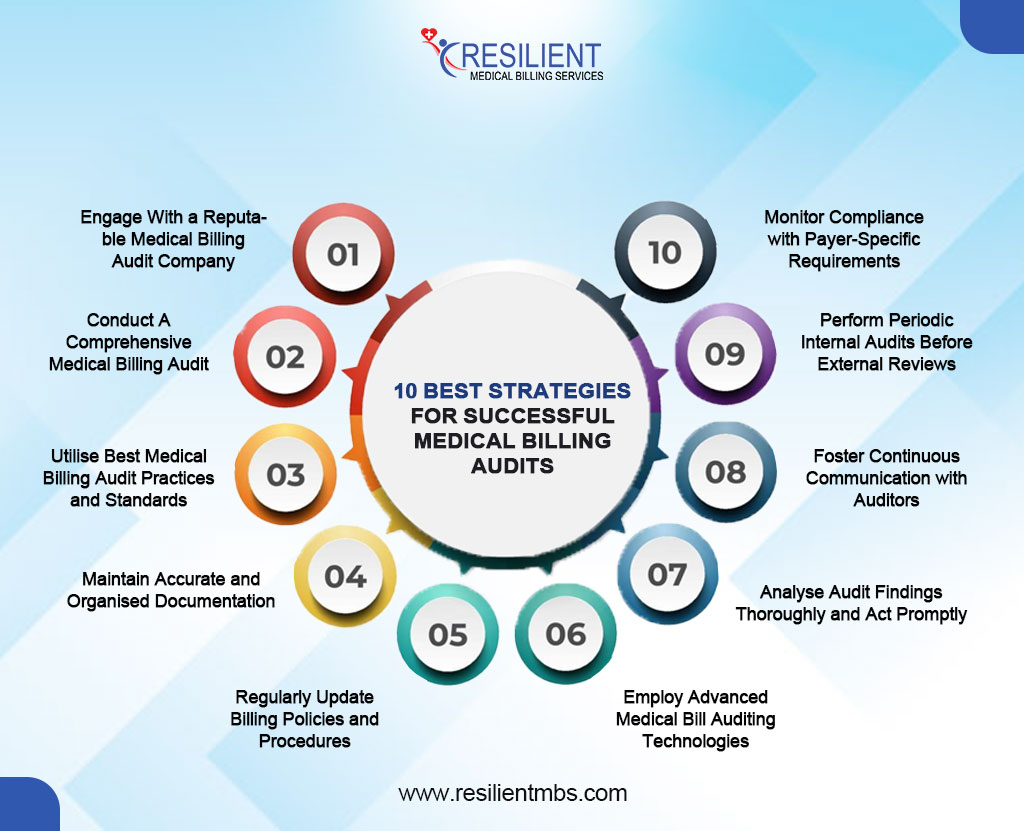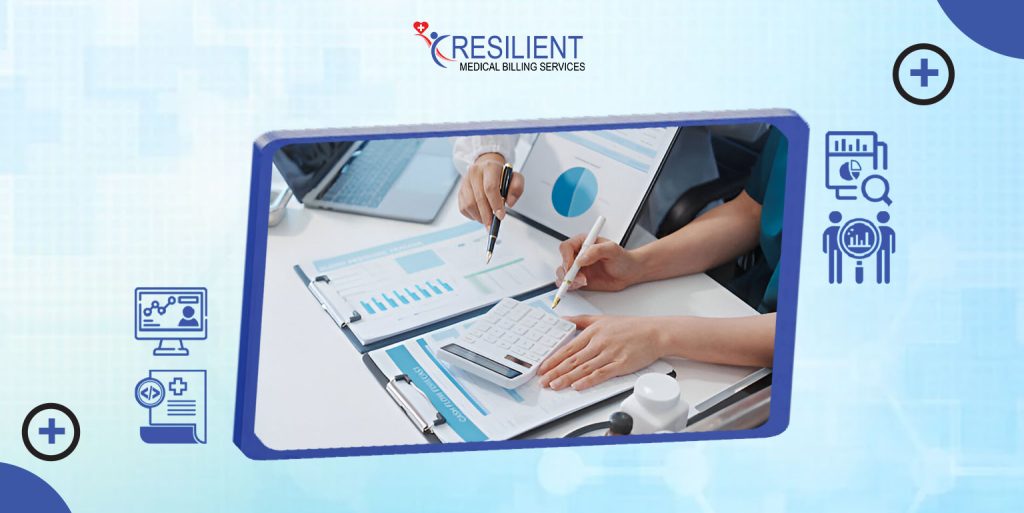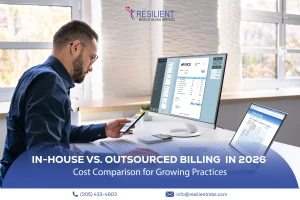Regarding medical bills, negotiating in today’s complex healthcare environment may appear daunting. Getting it done properly is about creating trust with your patients and being on the right side of the law, not just about controlling the funds in your account.
That’s where regular medical billing audits come in. Think of them as your safety net, helping catch errors early, prevent fraud, and make sure you’re getting every dollar you deserve. Staying ahead with these audits means smoother operations and greater peace of mind.
Definition and Purpose of Medical Billing Audits
A medical billing audit is a structured review of billing and coding to ensure accuracy and regulatory compliance. Its primary goals are to detect errors, prevent revenue loss, and avoid legal or financial risks. By reviewing documentation and coding, providers can identify inefficiencies and non-compliance.
Regular audits help maintain compliance with CMS, HIPAA, and other regulations. They also detect underbilling and overbilling, improve claim approvals, reduce denials, and boost revenue and operational efficiency.
Here are the 10 best Strategies for successful medical billing Audits:

1. Engage With a Reputable Medical Billing Audit Company
Accurate, practical outcomes depend on selecting a qualified medical billing audit firm. Experienced professionals enable comprehensive assessments and strategic recommendations by knowing healthcare rules, payer policies, and specialty billing intricacies.
Reviewing billing policies, guarantees adherence to current standards, and using sophisticated tools and analytics to find problems in a specialised company. Their objective views enable internal teams to streamline processes, rectify mistakes, and mitigate future compliance risks.
2. Conduct a Comprehensive Medical Billing Audit
A comprehensive medical billing audit thoroughly examines the entire billing process—from patient registration to payment posting to identify issues in documentation, coding, claims, and revenue capture.
Key Components of a Detailed Audit:
- Patient Documentation Review: Ensures clinical notes justify billed services.
- Coding Accuracy: Confirms correct use of CPT, HCPCS, and ICD-10 codes.
- Claims Review: Checks for complete and consistent claim submissions.
- Denial Analysis: Identifies patterns and root causes of claim denials.
- Compliance Review: Verifies adherence to federal and payer regulations.
- Revenue Leakage Detection: Uncovers missed charges or underbilling.
3. Utilise Best Medical Billing Audit Practices and Standards
Adhering to industry standards is essential for effective medical billing audits, ensuring accuracy, compliance, and efficiency. Organisations such as CMS, AMA, and HFMA provide guidelines to help providers manage complex billing systems.
Incorporating these practices promotes consistency and accountability, reducing discrepancies and audit risks. Routine internal audits, risk assessments, and audit software help detect irregularities early and prevent compliance issues from arising.
Following recognised audit guidelines also minimises errors and fraudulent claims, protecting against financial penalties and reputational harm. A strong audit framework aligned with regulations enhances both operational integrity and compliance.
4. Maintain Accurate and Organised Documentation
Accurate and well-organised documentation is essential for a successful medical billing audit. It ensures transparency, simplifies auditing, and proves compliance with billing regulations. Auditors depend on thorough records to verify services, validate coding, and check adherence to payer policies.
Maintaining chronological patient files, completing encounter forms, and ensuring safe, easily accessible electronic storage, healthcare practitioners should adhere to standard practices for coding data and billing organization. Including electronic health records (EHRs) into billing systems helps reduce mistakes and expedite the process.
Consistently using updated coding references, such as ICD-10, CPT, and HCPCS, is crucial for accuracy. Regular internal audits and peer reviews further help identify documentation gaps and promote best practices.
5. Regularly Update Billing Policies and Procedures
Updates in payer requirements, coding systems, and legislation change healthcare billing. To comply, suppliers must routinely evaluate and adjust their billing policies to meet current standards.
Setting a review timetable, watching CMS and other authority updates, and rapidly implementing changes into internal procedures is proactive. This assures compliance and streamlines billing. Staff training is just as necessary. Regular policy updates, code modifications, and audit readiness training reduce errors, audit risks, and financial and operational instability.
6. Employ Advanced Medical Bill Auditing Technologies
Automation and advanced auditing tools have revolutionised medical billing audits in the 21st century by streamlining processes, reducing errors, and ensuring compliance with regulations. These systems cross-check data, flag errors, and identify anomalies with minimal human intervention. This saves time and reduces the risk of non-compliance.
Innovative tools make it easier to enter data, code it correctly, and check claims. Machine learning identifies trends of errors and suggests ways to prevent them, while real-time analytics provides information that can be used immediately. This technology enhances the quality of audits, expedites refunds, and ensures that funds are handled transparently and honestly.
7. Analyse Audit Findings Thoroughly and Act Promptly
Thoroughly analysing audit findings helps identify the root causes of billing errors. To do this, you have to look at both data trends and problems with compliance and mistakes in coding to see how they affect revenue. Accurate analysis leads to well-thought-out, custom-fitted corrective actions.
Prompt and focused corrective steps are crucial for resolving audit issues. This includes updating protocols, retraining staff, and adjusting billing practices to meet the standards of payers and the industry. Integrating audit feedback into daily operations helps prevent errors and fosters continuous improvement, ultimately enhancing both service quality and financial performance.
8. Foster Continuous Communication with Auditors
Building a transparent, collaborative relationship with auditors is key to a successful audit. Open communication fosters trust, ensures access to accurate documentation, and helps align objectives while addressing issues early.
Promptly responding to auditor inquiries with clear, documented answers keeps the audit on track and prevents delays. Designating knowledgeable contacts to coordinate information and follow-ups enhances responsiveness and efficiency. By prioritising collaboration and timely communication, healthcare providers ensure audit readiness and demonstrate a commitment to compliance.
9. Perform Periodic Internal Audits Before External Reviews
Conducting regular internal audits is essential for maintaining an accurate and compliant medical billing system. These audits help identify errors, inefficiencies, and compliance risks early, allowing providers to address issues before they escalate.
By reviewing billing, coding, and documentation practices, organisations can improve accuracy and reduce the risk of financial penalties or reputational harm. Proactive auditing demonstrates a strong commitment to compliance and supports ongoing improvement.
10. Monitor Compliance with Payer-Specific Requirements
Payer-specific compliance is a crucial aspect of medical bills that can be challenging to understand. Whether it’s a private or public insurance company, each one has its own rules, coding instructions, documentation standards, and reimbursement policies. Failing to follow the rules can result in claims being rejected, payments being held up, audits, or fines.
To remain compliant, healthcare providers must regularly monitor payer updates and adjust their billing processes accordingly. This includes modifying claim formats, understanding coverage limits, and ensuring documentation supports the billed services. Following payer-specific protocols minimises errors, boosts claim approval rates, and enhances revenue cycle efficiency.
Closing Thoughts
Robust medical billing audits are not merely a regulatory necessity. They are a strategic way. Regular medical billing audits are essential for maintaining financial integrity and operational efficiency. By staying proactive and adhering to payer-specific guidelines, healthcare organisations can reduce risks, improve reimbursement accuracy, and ensure long-term success.
Implementing best practices consistently helps avoid billing errors, enhance compliance, and build patient trust.
For expert support and medical billing audit services, partner with Resilient MBS.
Our comprehensive medical billing audit services identify vulnerabilities, optimise efficiency, and keep your practice compliant. Contact us today to schedule a consultation and elevate your billing operations.









